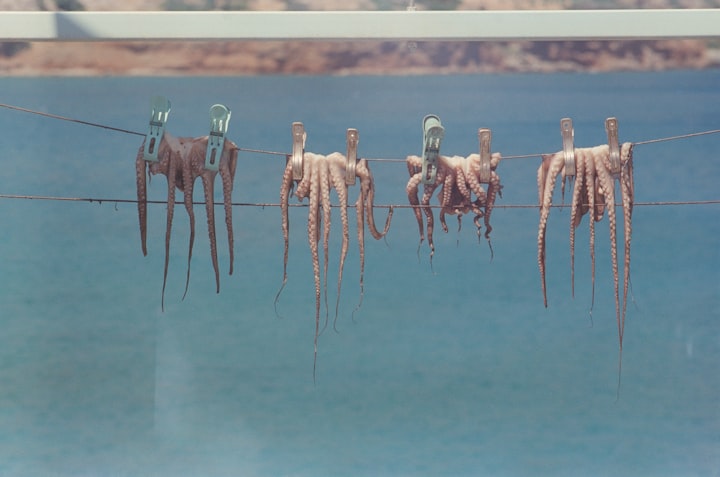
Octopuses: Masters of Camouflage and Intelligence
Octopuses are fascinating creatures that belong to the phylum Mollusca and are known for their distinctive appearance and intelligence. With their eight arms, large eyes, and bulbous head, octopuses have long been a subject of fascination for scientists and the general public alike. In this article, we will explore the unique features and behaviors of octopuses, as well as their importance in the ecosystem and in human culture.
Physical Characteristics
One of the most distinctive features of octopuses is their eight arms, which are lined with suction cups that allow them to grip onto surfaces and objects with remarkable dexterity. Their heads are also notable, with large, complex eyes that can detect colors and shapes, as well as the ability to change the shape and texture of their skin to blend in with their surroundings. Octopuses come in a variety of sizes, with some species measuring less than an inch in length while others can grow up to 16 feet long.
Behavior
Octopuses are known for their remarkable intelligence and problem-solving abilities. They have been observed using tools, such as coconut shells, to hide and protect themselves, and they are capable of opening jars and solving complex puzzles. In addition, octopuses are highly adaptable and can change their behavior and strategies depending on their environment and the challenges they face.
Octopuses are also known for their ability to escape from tanks and other enclosures, which has earned them a reputation as cunning and elusive creatures. They have been observed squeezing through small openings, such as the narrow gap between the lid and the wall of a tank, and they have been known to unscrew lids and manipulate locks to get out of their enclosures.
Ecological Importance
Octopuses play an important role in marine ecosystems as predators and prey. They are opportunistic feeders, meaning they will eat almost anything they can catch, including fish, crabs, and even other octopuses. As predators, they help to control the populations of other marine organisms, which helps to maintain a healthy balance in the ecosystem.
In addition, octopuses are an important food source for many other marine animals, including sharks, sea birds, and dolphins. Their ability to adapt to different environments also makes them an important indicator species for monitoring changes in ocean conditions and pollution levels.
Cultural Significance
Octopuses have a long history of cultural significance around the world, appearing in art, literature, mythology, and cuisine. In some cultures, they are seen as symbols of strength and flexibility, while in others they are revered for their intelligence and adaptability.
In Greek mythology, the god Poseidon was said to have created the octopus as a gift to the sea, and the creature was later associated with the goddess Athena. In Japanese folklore, the octopus is seen as a symbol of perseverance and survival, and is often depicted as a figure that can change shape and escape danger.
Octopuses are also an important part of cuisine in many cultures, particularly in East Asia and the Mediterranean region. They are often served in a variety of dishes, such as sushi, grilled, fried, or as a part of traditional stews and soups. In some cultures, the octopus is considered a delicacy, and its ink is used to flavor and color dishes such as pasta.
In modern times, octopuses have become popular subjects in art and popular culture, appearing in films, cartoons, and video games. They are often portrayed as intelligent and curious creatures that can use their wits to overcome challenges and solve problems.
Overall, the cultural significance of octopuses highlights the importance of these creatures in human society and the natural world. They are not only fascinating creatures to study and admire, but also provide valuable insights into the complex relationships between humans and the natural world.
Conclusion
In conclusion, octopuses are truly fascinating creatures that possess a range of unique physical and behavioral traits. Their intelligence, adaptability, and problem-solving abilities have captured the attention of scientists and the general public alike. They play an important role in marine ecosystems as predators and prey, and their cultural significance has been celebrated in art, literature, and cuisine around the world. As we continue to explore and learn more about these remarkable creatures, we can deepen our understanding of the natural world and the diversity of life within it.






Comments
There are no comments for this story
Be the first to respond and start the conversation.